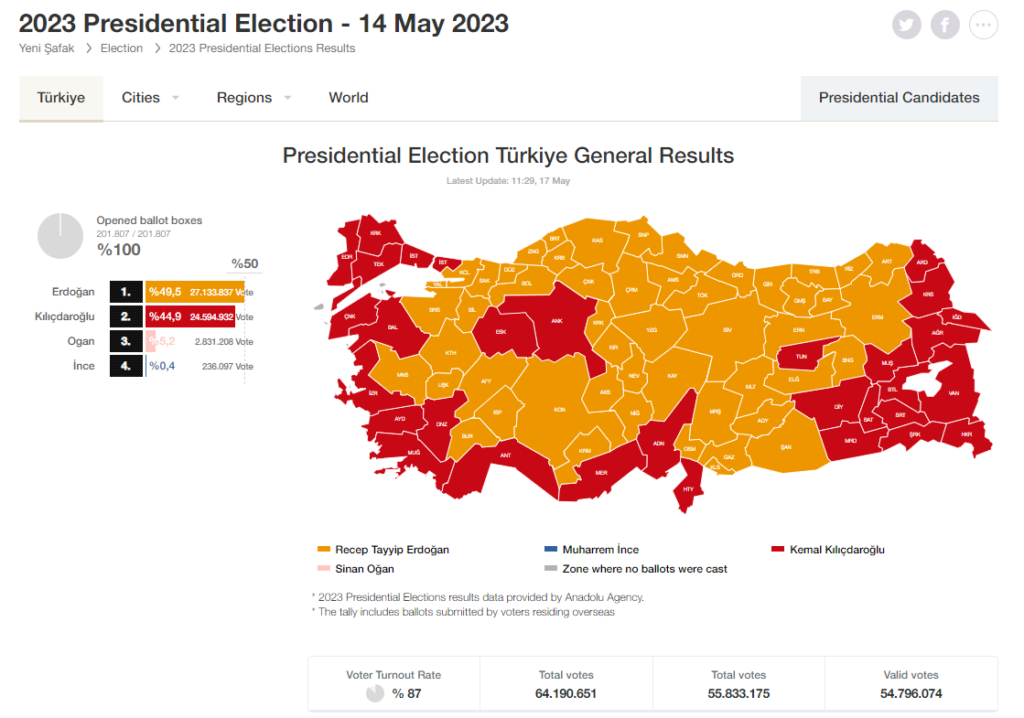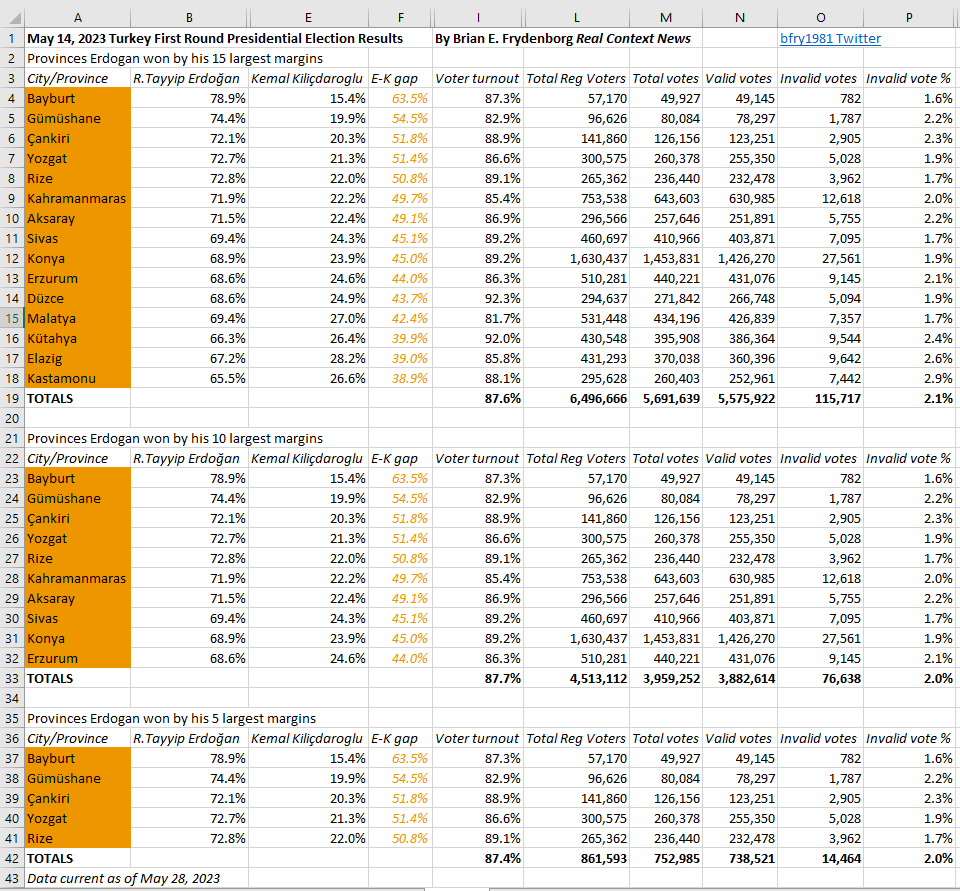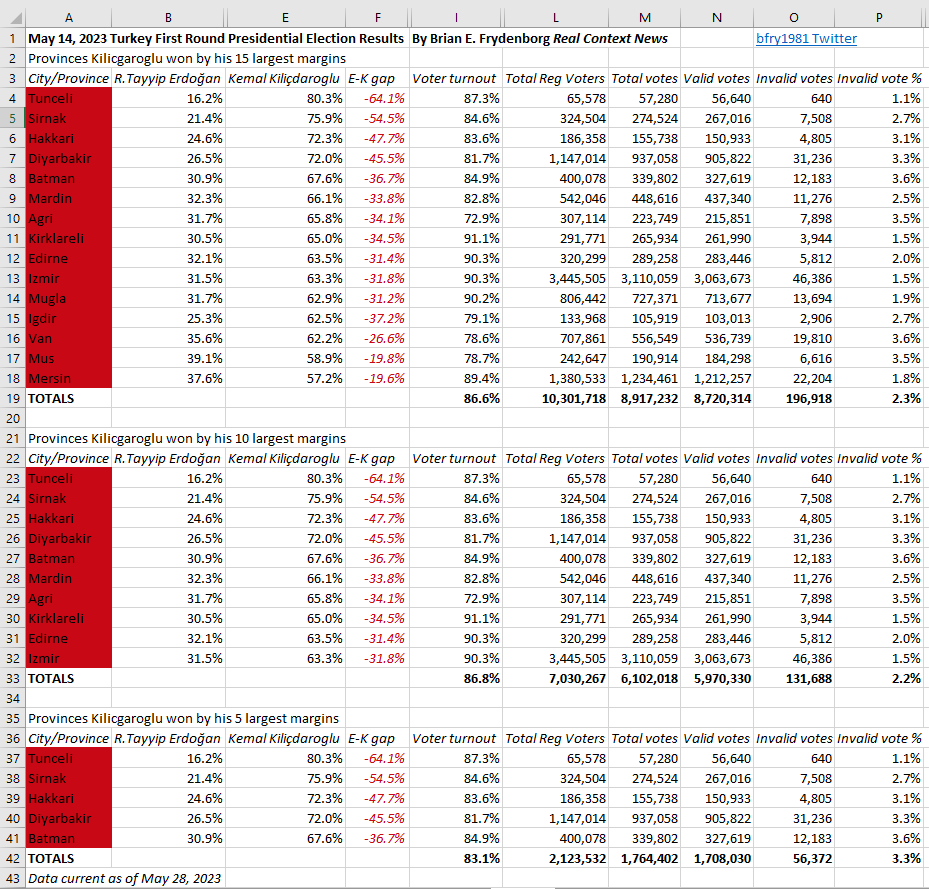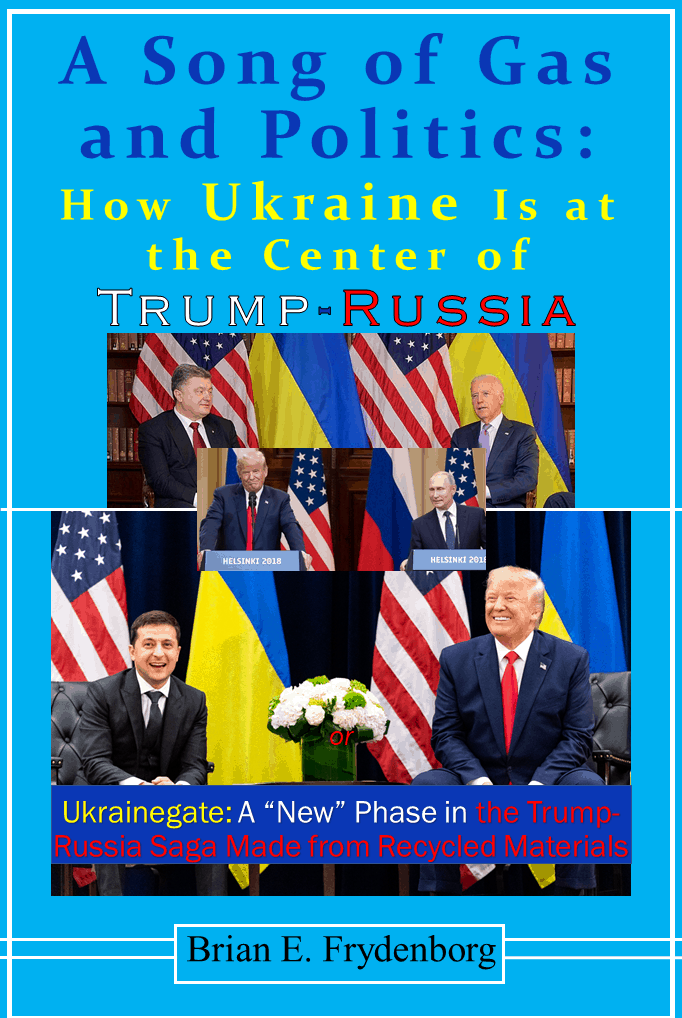Rejected ballot and voter turnout data favoring Erdogan over Kilicdaroglu collectively suggest foul play
By Brian E. Frydenborg (Twitter @bfry1981, LinkedIn, Facebook) May 28, 2023; see related ongoing Twitter thread and related articles by Brian from May 13 The Importance of The Effort to Eject Erdoğan Goes Far Beyond Turkey and from May 10 graciously published by The UnPopulist: Turkey’s Best Shot for Defeating its Illiberal President Is This Sunday (and feel free to hit that heart like button there!); because of YOU, Real Context News surpassed one million content views on January 1, 2023, but I still need your help, please keep sharing my work and consider also donating! Real Context News produces commissioned content for clients upon request at its discretion.

SILVER SPRING—Journalism is often mainly about distinguishing about what we do know, what we do not know, and what questions we must ask to move things in the second category into the first category. Few things are as important when it comes to all this as elections, and in an exclusive dataset that I compiled for all of Türkiye’s 81 provinces and overseas voting that raises serious questions, there is clear evidence that officials overseeing the May 14 first-round Turkish election acted in a biased way, rejecting significantly more ballots outright and as a percentage in regions strongly favoring opposition presidential candidate Kemal Kılıçdaroğlu as leader of the Republican People’s Party (CHP) than in regions strongly favoring incumbent President Recep Tayyip Erdoğan as leader of the Justice and Development Party (AKP) in addition to fostering a lower turnout environment for opposition strongholds.
At first glance, there does not appear to be much afoot. Looking at all 51 provinces Erdoğan won along with his win of overseas voters, 2% of ballots in those voting regions were rejected and turnout was 84.5% compared with looking at the 30 regions Kılıçdaroğlu won with a 1.8% ballot rejection rate and 88.9% turnout. But such an overall look can be deceiving, as some of these regions were split very closely. In districts Erdoğan won by 10 points or more, there was a rejected ballot rate of 2% and turnout was 84% compared with a ballot rejection rate of 2.2% and voter turnout of 87.3% in provinces Kılıçdaroğlu won by 10 or more points. Still not much to see, but there are still a lot of Erdoğan votes proportionately in these places.
But what if we look at the 15, 10, and 5 places each candidate won by the most points? For Erdoğan’s 15, 10, and 5 largest-win-margin locations, the ballot rejection rates were 2.1%, 2%, and 2% with 87.6%, 87.7%, and 87.4% turnout, respectively. For Kılıçdaroğlu, his 15, 10, and 5 widest-margin-victory provinces saw 2.3%, 2.2% and 3.3% ballot rejection rates and turnout of 86.6%, 86.8%, and 83.1%, respectively. Overall, 558,683 invalid votes came from places Kılıçdaroğlu won compared with just 478,418 in places Erdoğan won, a difference of 80,265 votes favoring regions Erdoğan won, a more than 16.1% difference. Part of this is because Erdoğan is more popular in rural areas, but still, the consistent contrasts in ballot rejection rates in the areas going heavily for Erdogan and areas going heavily for Kılıçdaroğlu—especially the 3.3% to 2% rejection rate (a 60.6% increase) and the 83.1% versus the 87.4% turnout difference for five provinces with the highest victory margins for Kılıçdaroğlu and Erdoğan, respectively—do suggest something more than just coincidence, namely an organized effort by election officials to reject more Kılıçdaroğlu than Erdoğan ballots and voter suppression of opposition strongholds.


While this favoring of Erdoğan was not enough to change the outcome from May 14, in a closer election it would have been and it also begs the question of how much rigging and suppression beforehand can be factored into the results, a question impossible to answer with quantitative precision. But questions we can try to answer to at least are what factors explain the significant difference in ballot rejection rates between the candidates’ highest-performing provinces and the difference in voter turnout rates in their very highest performing provinces. While a number of factors could possibly explain these gaps, this does not pass the smell test. I may add data from today’s vote and see what that may indicate, and further exploration of data from the nearly 1,000 districts the 81 provinces are divided into and possibly even looking at overseas results from individual nations may yield even more telling results, but that would be quite an undertaking…
As the final votes come in as I write this giving Erdoğan a relatively narrow victory of about 52%-48% over Kılıçdaroğlu to propel him to his third term as president, these questions are precisely the ones vital for keeping Turkish democracy from being smothered by Erdoğan’s cheating illiberal authoritarianism, as I noted here. But, of course, they are precisely the kind of questions Erdoğan and his people will want to avoid answering, or at least answering truthfully (these folks are people who incredibly blamed what were ISIS or ISIS-inspired suicide bombings on Kurdish militants). In contrast, Local and international NGOs and investigators should pursue the answers to these questions with vigor.
With such a deeply uneven playing field over not just the current five-year presidential term but even before, Turkish officials were careful not to cheat so much on election day as to create outrage, avoiding significant tampering on the actual voting day of May 14 and presumably (but not certainly) May 28, but just enough so that if the election were razor-thin, it would give their man Erdoğan the decisive edge. That was not needed in the end, and it really seems as if the best bet for the opposition was to pass 50% of the vote with a more crowded field during the May 14 vote. The likelihood of the opposition triumphing was even less on the May 28 second-round runoff election, and Erdoğan has walked away with a win, Turkish democracy subserviently on his leash and unlikely to break free anytime soon, sadly for both Turks and for democracy. His victory is not only a major blow to Turkish democracy but democracy in the region as a whole and even globally, as I argued earlier.
If you are a member of a news organization or an academic or research institution, or if you are a well-established freelancer who would like to license this dataset with further categories, datapoints, and calculations not discussed in this article for credited use, please do not hesitate to contact me. I also respect hustlers like myself and will be willing to entertain different terms for more independent, less-established journalists and researchers, and would especially like to engage and assist if you are members of or support the Turkish opposition CHP or the much-repressed Kurdish political party, the People’s Democratic Party (HDP). If you are any of these, please contact me as soon as possible to discuss. And let us all hope for a free Türkiye with free and fair campaigns and elections.
© 2023 Brian E. Frydenborg all rights reserved, permission required for republication, attributed quotations welcome
Also see Brian’s eBook, A Song of Gas and Politics: How Ukraine Is at the Center of Trump-Russia, or, Ukrainegate: A “New” Phase in the Trump-Russia Saga Made from Recycled Materials, available for Amazon Kindle and Barnes & Noble Nook (preview here).

If you appreciate Brian’s unique content, you can support him and his work by donating here; because of YOU, Real Context News surpassed one million content views on January 1, 2023. Real Context News produces commissioned content for clients upon request at its discretion.
Feel free to share and repost this article on LinkedIn, Facebook, and Twitter. If you think your site or another would be a good place for this or would like to have Brian generate content for you, your site, or your organization, please do not hesitate to reach out to him!